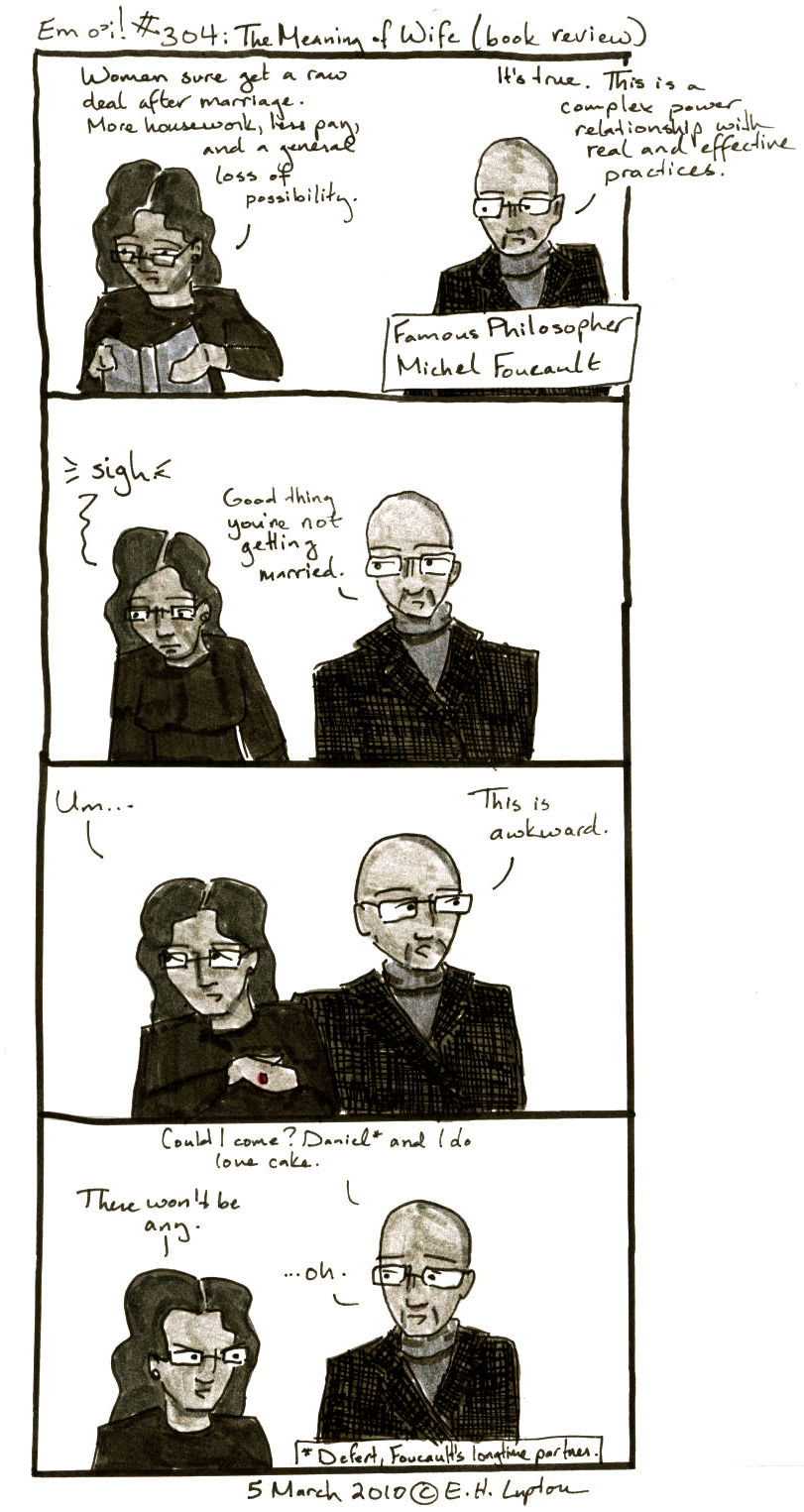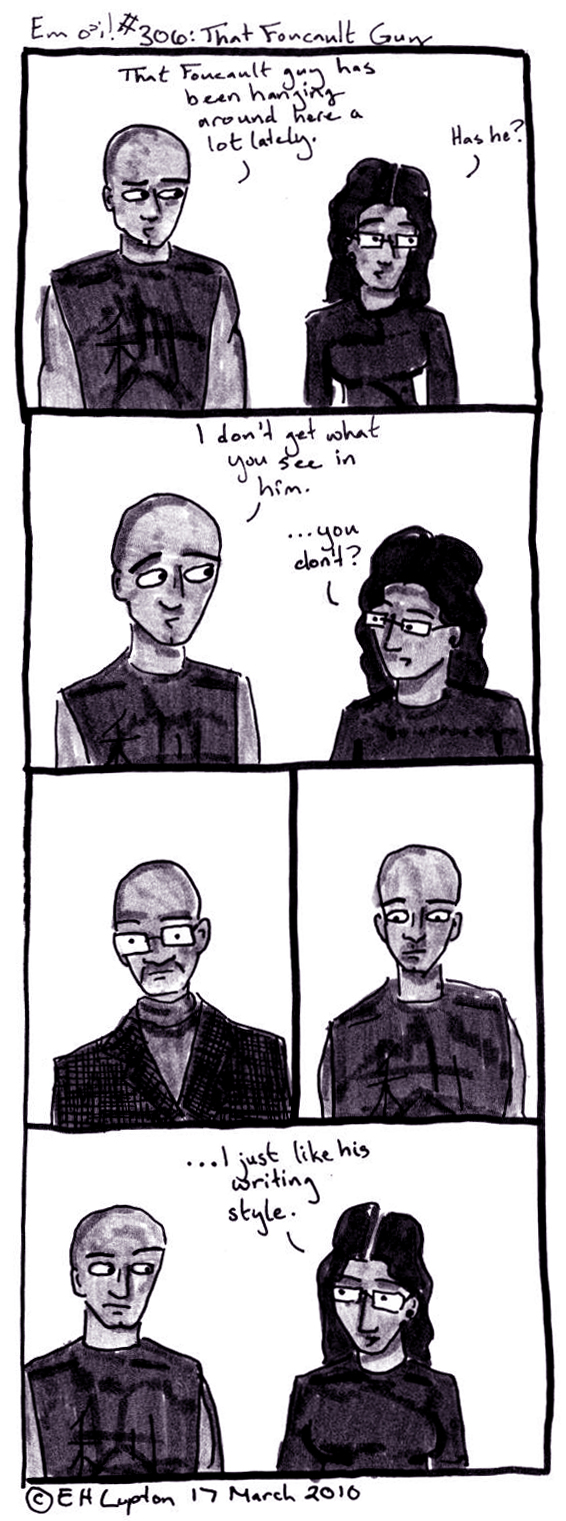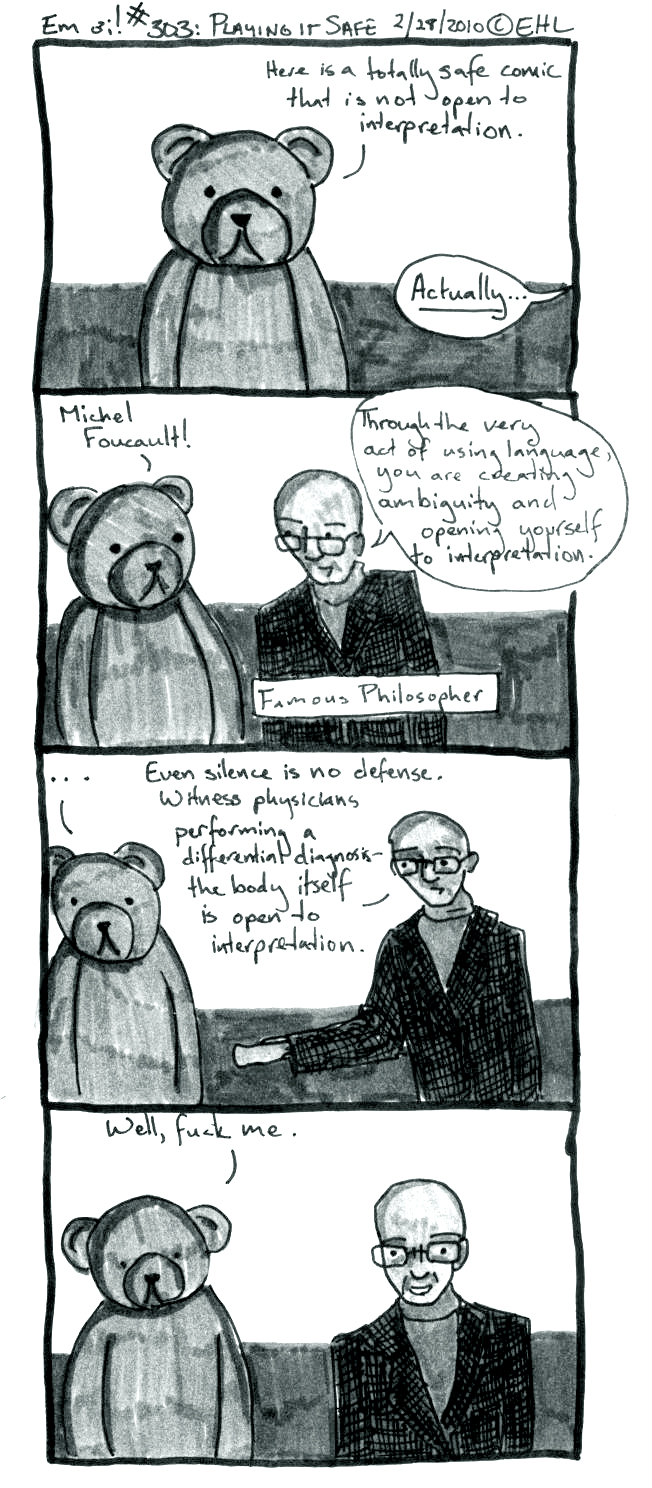 Once I was reading an interview with Daniel Defert about Foucault’s last days, and he said this:
Once I was reading an interview with Daniel Defert about Foucault’s last days, and he said this:
Deux jours après l’enterrement, j’entre dans un café, je croise un journaliste que je connaissais un peu. Il me regarde, absolument sidéré. Comme un objet d’effroi. Je comprends son regard. Je découvre, là, brutalement, que j’étais, à Paris, la seule personne dont on pouvait penser qu’elle avait le sida. Foucault mort du sida, j’avais donc le sida. Je découvre le sida, dans le face-à-face avec quelqu’un. Et c’est là que je comprends que je vais être obligé de faire un test, car autrement je n’arriverai pas à soutenir cette confrontation en permanence.
Two days after the burial [i.e. of Foucault], I went into a cafe, I met a journalist who I knew a bit. He looked at me, absolutely flabbergasted. Like an object of terror. I understood his look. I discovered, there, brutally, that I was, to Paris, the only person of whom it was possible to think she had AIDS. Foucault died of AIDS, I therefore also had AIDS. I discovered AIDS, in the face to face encounter with someone. And this made me understand that I was obligated to take a test, because otherwise I would never reach a place where I could withstand this confrontation permanently.
(My poor, idiomatic translation and bolding. The source is here – Libé, 2004.)
So that was what stuck with me, reading about Defert and Foucault lo these many years later: the terrifying isolation he must have felt and the silent oppressive stares he was met with, walking into a cafe one morning in Paris. Defert has remained an object of passing interest ever since (as opposed to a footnote to a philosopher whose work I enjoy).
About The Meaning of Wife: A Provocative Look at Women and Marriage in the Twenty-first Century by Anne Kingston: fantastic book, wish it had gone farther into the 21st C (she wrote it before the onset of desperate housewives and the massive multiparenting Duggars/Jon and Kate Plus Eight (or is it Jon minus nine?)/the Octomom phenomena began, which saddens). Also, not really much about LGBT marriage, sadly, except to say lesbians were cool at the end of the 20th century. Bleh. At any rate, perhaps not the book to read three weeks before you get married, since it rather makes one think that success may lie in staying single. (It’s like a terrible article I read somewhere that pointed out that famous women writers typically had 0-1 child instead of 2+, as if having 2+ kids would prevent success or something? Even with a room of one’s own?) At any rate, am still getting married, so I’ll let you know re the success thing.






